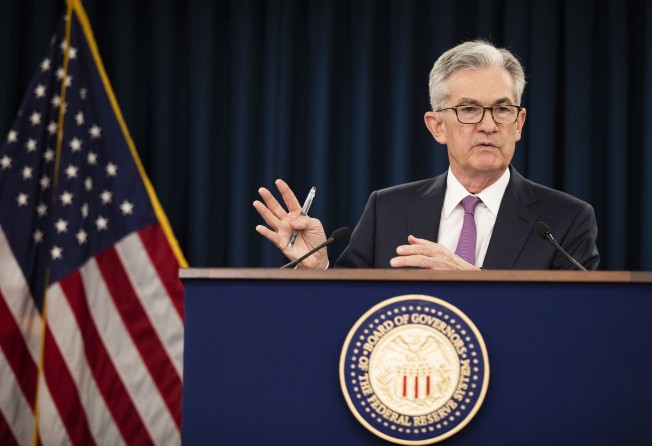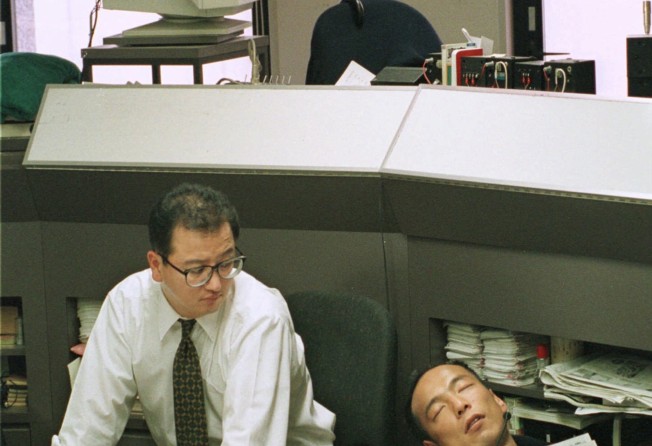As the US fights inflation with a stronger dollar, what about the rest of the world?
- The Federal Reserve’s moves have triggered massive capital outflows from China and pushed the yen to multi-decade lows
- Keeping the dollar strong to fight inflation – in effect a kind of currency manipulation – can be pushed only so far before it triggers extreme volatility and a race to the bottom among export-oriented nations

The world may not be experiencing full-blown currency wars yet but there is growing turmoil in the currency markets as capital rushes out of China, other emerging markets and Japan into the dollar. Ironically, the only other currency showing strength is the Russian rouble.
It is a reminder that a global monetary order run by and principally for the benefit of the United States cannot serve the world economy’s best interests. The world needs a global monetary authority but it may require a galvanising crisis before this happens.
The US Federal Reserve’s monetary priorities are primarily domestic – fighting inflation, raising interest rates and fostering a strong dollar being the most important now. But Fed policies have a global impact because of the dollar’s key international role in an age of free capital flows.
The Fed arguably left it too long to begin its fight against inflation before reacting quite sharply, leaving the world to bear the consequences, which are only just beginning to unfold. These promise to be as profound as they are widespread.
China is a good example. It suffered its largest quarterly capital outflow on record in the first three months of this year as foreign investors sold equities and bonds, with local currency bonds accounting for most of the outflow.
This was due partly to the seductive attractions of a strong dollar as interest rate differentials favouring it grew, even as Covid-19 lockdowns and the “perceived risk of investing in countries whose relationships with the West are complicated” provoke outflows from China, according to the Institute of International Finance.
Outflows from other emerging markets have not been as strong. But the Fed is only just beginning its tightening process and the capital exodus from emerging markets across Asia and beyond looks set to accelerate as the Fed raises its rates.
This is not just an emerging-market phenomenon. The yen has slumped to its lowest in 20 years against the dollar in nominal terms, after hitting its lowest in 50 years in inflation-adjusted terms, as Japanese pension funds, insurance companies and others shift yen assets into the US currency.
This, again, may be just the start of things. The consensus of an expert panel on the yen which I moderated recently at the Foreign Correspondents’ Club of Japan was that 130 yen to the dollar may be far from the bottom – 140 to 150 or even 160 was predicted.
China’s currency too has been sliding against the dollar. So, when will this conjunction of events provoke more fierce currency wars involving the yen and yuan? Washington has been uncharacteristically quiet after past allegations of currency manipulation.
The Biden administration and Fed chair Jerome Powell are keenly focused on keeping the dollar strong to fight inflation, and the relative weakness of the yen and yuan helps keep down the dollar cost of imports into the US.

Yet this process – itself a kind of currency manipulation – can be pushed only so far if it is not to trigger extreme volatility and a race to the bottom among Asian and other export-oriented countries intent on maximising access to the US market. South Korea and some Association of Southeast Asian Nations members come to mind.
Interestingly, US Treasury Secretary Janet Yellen has signalled a possible change of direction in the currency policy. She suggested the US might consider reducing some trade-war tariffs imposed on China. This would have the same effect as a yuan devaluation.
Otherwise, China might complain about excessive yen weakness, as it did in 1998, when the yen weakened past 135-140 per dollar, as veteran Japan analyst Jesper Koll noted. And Washington is not eager to get into a currency war with Tokyo when Japan is a close US ally.

While Yellen’s idea is enlightened, the use of currencies as instruments of trade and strategic policy – as the US especially is able to do given the dollar’s key role – should be avoided. Such “manipulation” can have unintended consequences.
It can also backfire. Financial sanctions imposed by the US and its allies on Russia after the invasion of Ukraine were supposed to see the rouble crumble but the opposite occurred after Moscow demanded payment in roubles for its energy exports.
Washington would probably think twice about using such sanctions against China in the event of a Taiwan flare-up, said senior fellow Hung Tran at the Atlantic Council, noting that China has “plenty of room” to retaliate and losses would be severe for both sides.
Because of their potential for consequences beyond national borders, monetary and currency policy needs to be exercised with a sense of responsibility to the global community. This cannot happen if decisions of global consequence are made behind closed doors in Washington.
Anthony Rowley is a veteran journalist specialising in Asian economic and financial affairs